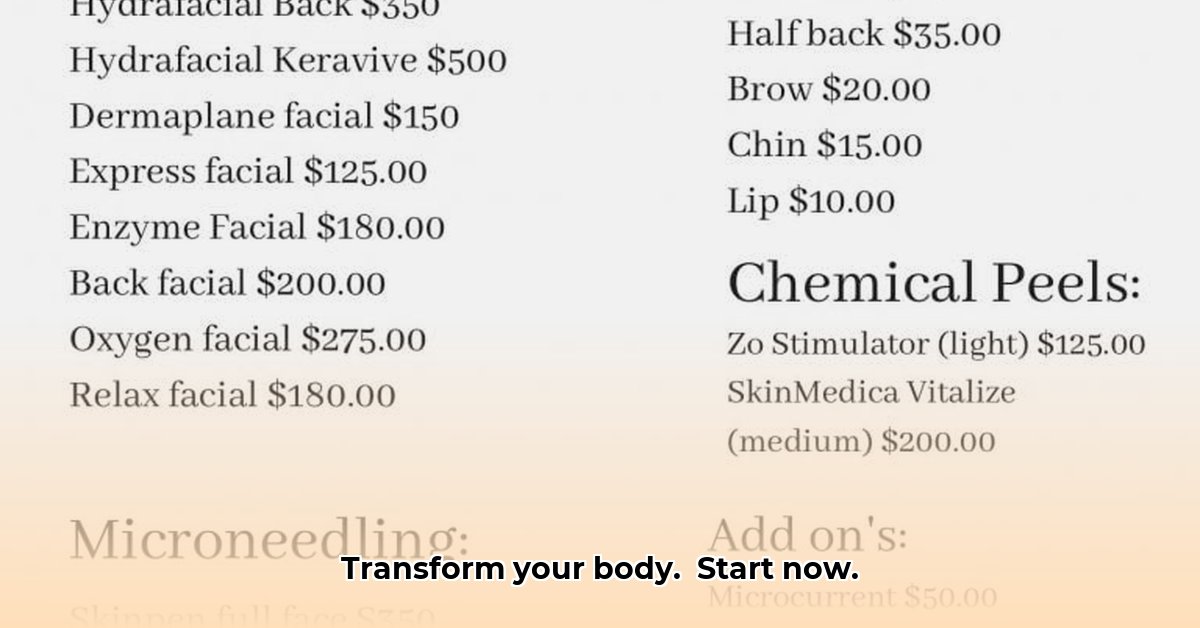
Achieving Your Weight Goals Through Integrated Wellness
The pursuit of a healthy weight often feels like a relentless uphill battle. Yo-yo dieting and fleeting results leave many frustrated and disheartened. However, a new approach is gaining traction: medical spas offering integrated weight loss programs. These facilities combine medical expertise with a luxurious spa experience, promising not only effective weight loss but also a renewed sense of well-being. This article explores the science, opportunities, and challenges within the evolving landscape of MD weight loss and spas, providing insights for potential patients, investors, and regulatory bodies.
The Growing Demand for Holistic Weight Management
Consumer demand is shifting. People are seeking more than just quick fixes; they desire a holistic approach encompassing physical health, emotional well-being, and self-image. This demand fuels the rapid growth of MD weight loss and spas. These facilities focus on creating lasting lifestyle changes that support overall health. It's not just about pounds lost, but about feeling good both inside and out. This resonates deeply with those seeking sustainable, long-term results. Isn't this precisely what so many struggling with weight loss are looking for?
Treatment Modalities: A Multifaceted Strategy
MD weight loss and spas employ a multi-pronged strategy to address weight management. Medically supervised programs often include personalized meal plans, tailored exercise regimens, and, in some cases, medication to support appetite control or metabolic function. These programs are carefully designed to meet individual needs and health conditions.
Beyond weight loss, aesthetic improvements contribute to overall well-being. Laser treatments enhance skin tone, and injectables address specific concerns. These enhancements boost self-esteem, crucial for long-term commitment to a healthier lifestyle. Some facilities incorporate hormone replacement therapy (HRT) when hormonal imbalances contribute to weight gain. The objective is a comprehensive approach, addressing multiple factors affecting weight and overall health.
Opportunities and Challenges in the Evolving Landscape
The popularity of integrated weight loss programs presents significant opportunities. Diversified revenue streams, built upon a range of services, lead to increased patient loyalty and long-term relationships. But challenges exist. Maintaining data transparency is paramount for building trust; however, collecting and sharing comprehensive data on treatment outcomes can be complex.
Regulatory landscapes vary significantly. While technology offers personalization and efficiency (telehealth, wearable tech, data analytics), it also introduces data security and privacy concerns. Balancing innovation with responsible data management is critical. How can we ensure the responsible use of this technology while protecting patient privacy?
Leveraging Technology for Personalized Care
Technology is revolutionizing weight loss. Telehealth expands access to care, allowing for convenient remote monitoring and consultations. Wearable technology offers valuable insights into activity, sleep, and other health metrics, enabling even more customized treatment plans. Data analytics allows for truly personalized treatment approaches based on individual health data. However, robust data security measures are essential to protect patient privacy. What cutting-edge measures are being implemented to safeguard sensitive patient information?
Navigating the Regulatory Landscape: Ensuring Patient Safety
Regulatory compliance is paramount. A comprehensive understanding of licensing requirements for offering combined medical and cosmetic services is crucial. Clinics must adhere to strict safety standards and best practices to ensure patient well-being. Open communication with regulatory bodies builds trust and maintains a positive reputation. What are the key regulatory hurdles facing the industry, and how are they being addressed?
Financial Considerations: Investment and Returns
For investors, the MD weight loss and spa sector presents a promising market. However, thorough due diligence is crucial to assess long-term viability. Effective patient retention strategies are vital for consistent revenue streams. Understanding the cost-effectiveness of various treatments is essential for competitive pricing strategies. How can potential investors effectively assess the financial risks and rewards in this dynamic market?
Best Practices and Recommendations
| Stakeholder Group | Actionable Recommendations |
|---|---|
| Medical Spas/Clinics | Implement robust data security; integrate telehealth; enhance marketing; develop comprehensive digital health platforms. |
| Investors | Conduct thorough due diligence; analyze ROI potential; invest in personalized medicine technologies; seek strategic partnerships. |
| Patients | Seek clinics with transparent data practices; actively participate in treatment; understand the limitations of treatments. |
| Regulatory Bodies | Develop clear guidelines; implement quality control measures; launch public awareness campaigns; invest in research. |
Conclusion: The Future of Integrated Wellness
The MD weight loss and spa industry is dynamic. By addressing challenges and embracing innovation, these facilities can continue to provide effective, safe, and personalized weight loss solutions. The journey to sustainable weight management is complex; integrated approaches offer a strong support system for patients on their path to a healthier, happier life. How can we further improve the effectiveness and accessibility of these integrated wellness programs?